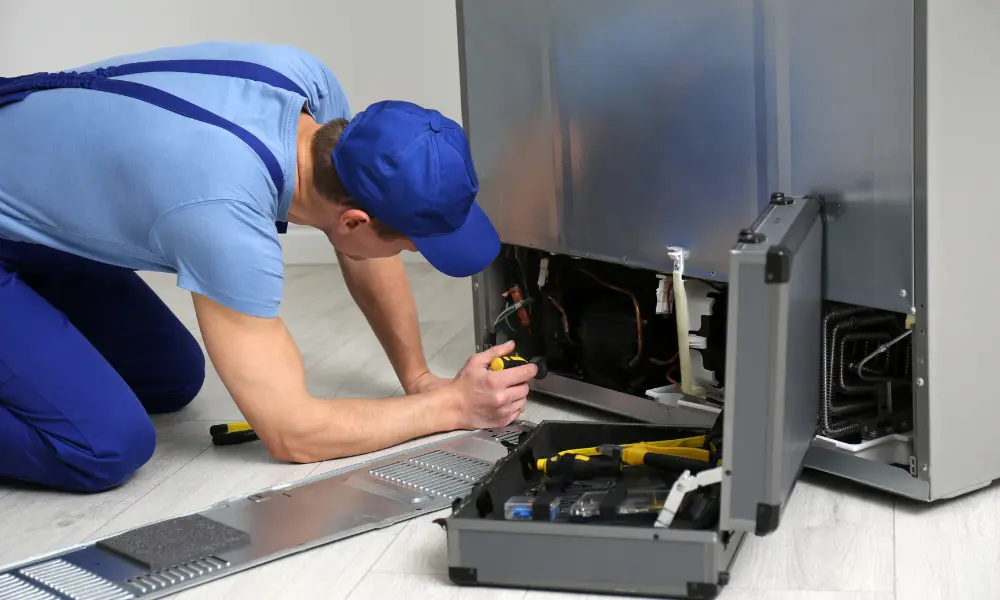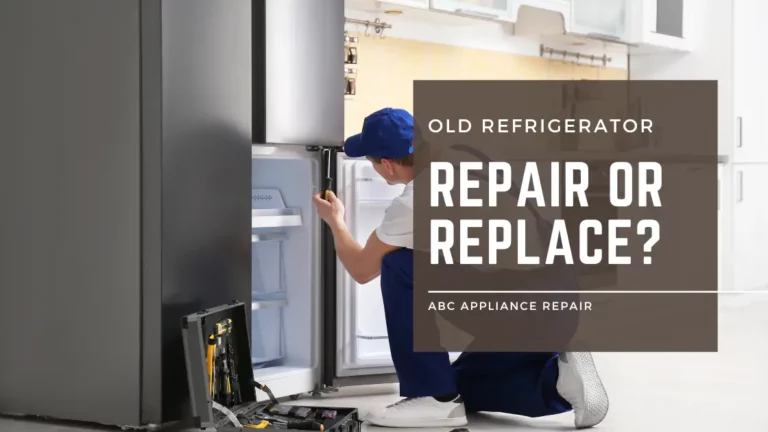When it comes to household appliances, a refrigerator is an essential one. It helps keep our food fresh and our drinks cold. However, there may come a time when you notice that your refrigerator is making an unusually loud noise. This can be not only annoying but also a cause for concern. Fortunately, there are several potential causes for a noisy refrigerator, and many of them can be resolved with some basic troubleshooting and maintenance.
In this guide, we will explore the various reasons why your refrigerator might be making noise and provide you with practical solutions to fix the issue.
Identifying the Cause of the Noise
Before delving into the solutions, it’s important to identify the source of the noise. Understanding the cause will help you narrow down the troubleshooting process and ensure that you implement the appropriate fix. Here are some common reasons for a noisy refrigerator:
- Faulty Fan Motor
- Worn-out Evaporator Fan Motor
- Damaged Condenser Fan Motor
- Clogged or Malfunctioning Compressor
- Misaligned or Worn-out Fan Blades
- Loose or Defective Motor Mounts
If you can’t identify the cause of the noise, then you should look for an expert refrigerator repair professional in your city to fix the problem with your refrigerator. Once you have identified the source of the noise, it’s time to take action. Here are several steps you can take to troubleshoot and fix a noisy refrigerator:
1. Cleaning and Maintenance

Regular cleaning and maintenance are vital for the optimal performance of your refrigerator. Follow these steps to ensure a clean and well-maintained appliance:
- Unplug the refrigerator and remove all items from the interior.
- Clean the interior using a mixture of mild detergent and warm water.
- Remove dust and debris from the condenser coils using a vacuum cleaner or a soft brush.
- Check and clean the condenser fan blades, ensuring there is no obstruction.
- Clean the evaporator fan blades and motor, if accessible.
- Wipe down the exterior of the refrigerator using a damp cloth.
- Plug the refrigerator back in and check if the noise persists.
2. Adjusting the Refrigerator’s Position

Sometimes, a noisy refrigerator can be attributed to its position or level. Here’s what you can do to address this issue:
- Ensure that the refrigerator is level by using a spirit level. Adjust the levelling feet as necessary.
- Make sure the refrigerator is not in direct contact with walls or cabinets, as this can cause vibrations and noise.
- Check if the flooring beneath the refrigerator is stable. If not, consider placing a sturdy mat or a vibration-absorbing pad underneath it.
3. Tightening Loose Parts

Over time, the constant operation of a refrigerator can cause certain parts to become loose, resulting in noise. Follow these steps to tighten any loose components:
- Unplug the refrigerator and access the back panel.
- Tighten any loose screws, bolts, or fasteners you encounter, particularly around the fan motors, motor mounts, and compressors.
- Ensure that the fan blades are securely attached to their respective motors.
4. Lubricating Moving Parts
To reduce friction and minimize noise, it’s important to keep the moving parts of your refrigerator properly lubricated. Follow these steps to lubricate the necessary components:
- Unplug the refrigerator and locate the fan motors, condenser fan, and evaporator fan.
- Apply a few drops of lubricating oil to the motor bearings and shafts.
- Rotate the fan blades manually to distribute the oil evenly.
- Wipe off any excess oil and plug the refrigerator back in.
5. Replacing Faulty Parts

In some cases, the noise may be due to a faulty component that needs to be replaced. Here are some parts you might need to replace:
- Evaporator fan motor
- Condenser fan motor
- Compressor
- Fan blades
- Motor mounts
Ensure you consult your refrigerator’s user manual or seek professional assistance when replacing these parts to ensure safety and proper installation.
Pros and Cons of Regular Cleaning & Maintenance
Pros of regular cleaning and maintenance:
- Improved efficiency and performance of the refrigerator.
- Prevention of potential issues that may cause noise.
- Prolonged lifespan of the appliance.
Cons of DIY troubleshooting and repair:
- Risk of damaging the refrigerator further if not done correctly.
- Voiding the warranty if unauthorized repairs are performed.
- Possibility of personal injury if safety precautions are not taken.
When Should You Call For An Refrigerator Expert?
When your refrigerator starts making strange noises, it can be alarming and frustrating. You may initially try to solve the problem yourself or ignore it altogether. However, there are some situations where you should call an expert refrigerator repairman in your city to fix the issue.
If your refrigerator makes a loud, grinding noise or a banging sound every time you close the door, it could indicate a serious problem that requires professional attention. Similarly, if you hear hissing sounds coming from your fridge’s compressor or notice excessive vibration when the unit is running, these might be signs of malfunctions that need immediate fixing. In such cases, hiring an experienced technician is crucial as they have the expertise and tools required to diagnose and repair complicated issues that often cause such noises.
Frequently Asked Questions (FAQs)
A loud buzzing noise can indicate a problem with the compressor or the condenser fan motor. Refer to the troubleshooting steps mentioned earlier to identify and fix the issue.
It is recommended to clean the condenser coils at least once or twice a year to ensure optimal performance and prevent excessive noise caused by dust accumulation.
While it is possible to replace a fan motor yourself, it is recommended to consult a professional technician, especially if you are unfamiliar with appliance repairs. This ensures the correct replacement and reduces the risk of further damage.
A rattling noise during the ice-making process could indicate a problem with the water line or a faulty inlet valve. Consider checking these components and seek professional help if needed.
Refrigerator compressors can typically last around 10 to 20 years. However, their lifespan may vary depending on factors such as usage, maintenance, and quality of the appliance.
Recommended Blogs
- How to Find A Reliable Refrigerator Repair Expert Near You?
- A guide to keeping your kitchen appliances in tip-top shape
Conclusion
A refrigerator making a loud noise can be a frustrating experience, but with the right knowledge and troubleshooting steps, you can resolve the issue and restore peace and quiet to your kitchen. Remember to identify the source of the noise, perform regular cleaning and maintenance, and seek professional help when needed. By following these steps, you can prolong the lifespan of your refrigerator and ensure its optimal performance for years to come.







